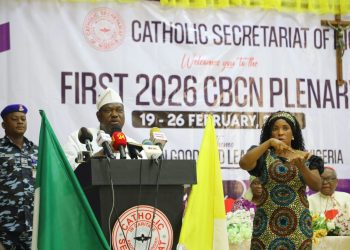By Nkechi Eze
The Fiscal Responsibility Commission (FRC) has expressed profound sorrow over the passing of former President Muhammadu Buhari, GCFR, describing him as a transformative leader whose contributions to Nigeria’s fiscal architecture continue to shape the nation’s economic direction.
In an official statement issued on Tuesday, July 15, 2025, the Executive Chairman of the Commission, Victor Muruako, Esq., conveyed condolences to the Government and people of Nigeria on behalf of the FRC, noting that Buhari’s passing represents the loss of a true statesman.
“Former President Buhari made transformative contributions to Nigeria’s fiscal framework,” Muruako stated, reflecting on key reforms initiated under the late president. He noted that one of Buhari’s early fiscal interventions was the introduction of the Zero-Based Budgeting (ZBB) system, which aimed to reset the nation’s budgeting approach, improve credibility, and enhance transparency and accountability in public expenditure.
Muruako further recalled that Buhari’s administration also introduced the Economic Recovery and Growth Plan (ERGP), a strategic initiative that helped steer Nigeria out of two economic recessions during his tenure. “His leadership ensured economic resilience during the global COVID-19 crisis,” he added.
The statement also highlighted the expanded implementation of the Treasury Single Account (TSA) under Buhari, which significantly improved financial oversight and curtailed public sector leakages. Another notable reform, Muruako said, was the 2019 Finance Act—hailed as a legislative milestone for being the first time in Nigeria’s history that an annual budget was backed by complementary fiscal and business reform laws, thus promoting a more sustainable economic environment.
Beyond federal-level reforms, Muruako emphasized Buhari’s efforts to instill fiscal responsibility among state governments. He referenced the introduction of the 22-point Fiscal Sustainability Plan in 2017 and the launch of the State Fiscal Transparency, Accountability, and Sustainability (SFTAS) program, both designed to encourage prudent financial practices at the sub-national level.
“His administration also provided critical bailouts to states facing fiscal crises, thereby reinforcing macroeconomic stability across all tiers of government,” he said.
Reflecting on Buhari’s enduring influence, the FRC Chairman remarked, “We mourn the loss of a statesman whose legacy of fiscal responsibility continues to inspire the work we do at FRC. Our thoughts and prayers are with his family, loved ones, and the entire nation during this period of national mourning.”















